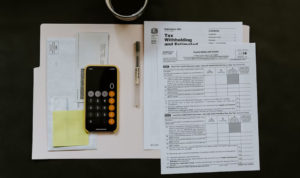Question 1. My wife and myself have been trustees of our SMSF for almost 20 years now but are considering winding up our fund and rolling over the funds into a retail superannuation fund to possibly start pensions. The main reasons for doing this is that we are now close to 70 years of age and no longer wish to spend the amount time required to manage the fund, but mainly, I do not want to leave my wife with the responsibility of running our SMSF by herself if I die before her.
We have considered getting a third trustee involved but have decided not to choose this option. We think we understand the general process of winding up a SMSF and rolling over the assets, but we have a question about some unlisted assets in the fund.
Can we buy these assets from our SMSF at market value to keep as private investments, or what other ways can we deal with these assets during the wind up of the fund? We do not necessarily want to keep them, but we want to maximise the amount we can roll over into the retail fund.
It is common for SMSF trustees to want to step back from the admin and responsibility of running their own fund as they get older.
Good on you for thinking about it now, as I have seen the situation you have outlined, one member/trustee of the SMSF passes away, and that was the individual who was mainly involved in the running of the fund, and the remaining member, i.e. their partner in most cases, is overwhelmed by not only grief but the headache of not having the skills or experience in running the SMSF.
The ATO has some information on winding up on SMSF, or you may want to seek advice from an accountant or the assistance of an SMSF wind-up service.
In terms of your unlisted assets, yes, you as an individual can buy them from the SMSF at market value (and at arm’s length). Therefore, you would pay cash to the SMSF to buy these assets. You should obtain an independent market valuation.
Alternatively, if you did not have the funds to buy them, and as you are nearly 70, all funds are unrestricted non-preserved, therefore the SMSF could transfer the assets to you ‘in-specie’ and this would be counted as a fund withdrawal.
If you did not want to keep them, the other option is that the SMSF sells these assets to someone else and keeps the proceeds in cash (in the SMSF name) until you roll over the SMSF into an APRA fund (retail or industry). The funds could then be retained and invested in the new super fund.
Another point worth considering is capital gains. If these assets have significant capital gains, you may want to start a pension with your SMSF prior to selling these assets as once funds are in pension phase there is no CGT payable.
You should consider seeking advice from an SMSF specialist in relation to this.
Question 2. I am a low-income earner and single parent and as such I receive certain benefits, namely the family tax benefit and a health care card. I have owned an investment property for many years.
If I sell the property, will the capital gain cause me to lose my benefits for a year or more? Can I spread the gain over multiple years or is there some other strategy to allow for this one-off event and still maintain my low-income benefits? Or in order to maintain the benefits do I have to retain the property forever? I acknowledge a one-off windfall gain is a nice problem to have but for the long term I rely on these benefits day to day. Thank you for any (general) advice or direction you can provide.
Family tax benefits are based on your financial year’s taxable income. This would include a capital gain. Therefore, your benefit would be reduced, possibly to nil for that financial year.
If you have under-estimated your taxable income for that financial year (as you were not expecting to sell the property), then you may have been overpaid, which may create a debt owed to Centrelink.
You cannot spread the gain over multiple years, and it may be best not to, i.e. only have one year when benefit is affected, possibly to nil, rather than multiple years.
For your health care card, the situation is different. Currently your rental income should be included in the income test. But when you sell the property, and place net proceeds into your bank account, then these funds will be ‘deemed’. However, the capital gain amount is not assessed.
Please confirm your exact situation with Centrelink.
Question 3. I am retiring in a few weeks. I don’t have huge sums of money – super of $137,000 and about the same in the bank. I believe I will get a part pension. Do I keep my super in super? Do I take a small income from my super? I don’t know what to do?
Given those level of assets you should go close to receiving the full age pension, depending on your overall situation, including home owner status and whether you are single or a member of a couple.
The most common approach is to convert your super into an income stream, whilst staying within the super environment. Nearly all super providers offer an income stream, where you can simply roll over (transfer) the money directly into one of these products.
You have to draw at least 2 per cent of your account balance each year, higher once you are older, and the fund remain accessible so you can always nominate a higher amount.
In this way you can receive the money tax free, and it would be a nice top up to your age pension.




